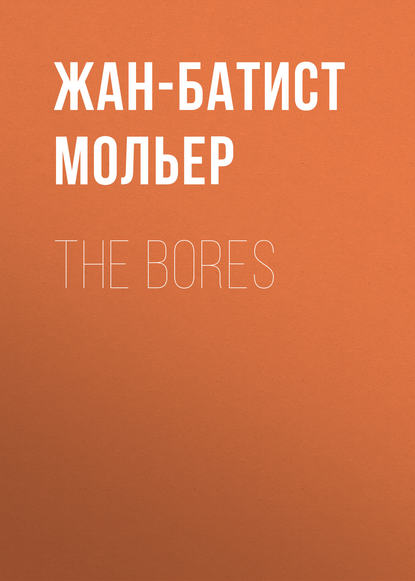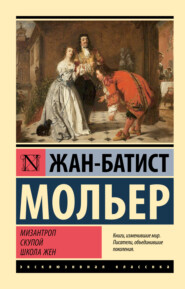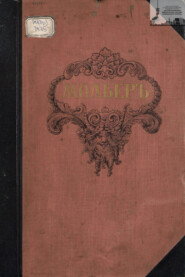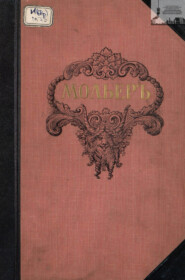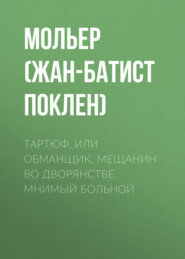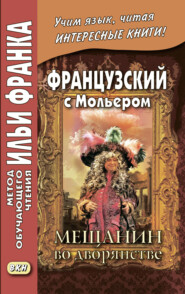По всем вопросам обращайтесь на: info@litportal.ru
(©) 2003-2024.
✖
The Bores
Год написания книги
2017
Настройки чтения
Размер шрифта
Высота строк
Поля
OR. In a word, you shall be our umpire, and you must spare us a couple of minutes.
CL. (To Orante). Now you are retaining one who must condemn you: for, to be brief, if what I venture to hold be true, this gentleman will give the victory to my arguments.
ER. (Aside). Would that I could get hold of any rascal to invent something to get me off!
OR. (To Climène). For my part, I am too much assured of his sense to fear that he will decide against me. (To Éraste). Well, this great contest which rages between us is to know whether a lover should be jealous.
CL. Or, the better to explain my opinion and yours, which ought to please most, a jealous man or one that is not so?
OR. For my part, I am clearly for the last.
CL. As for me, I stand up for the first.
OR. I believe that our heart must declare for him who best displays his respect.
CL. And I that, if our sentiments are to be shewn, it ought to be for him who makes his love most apparent.
OR. Yes; but we perceive the ardour of a lover much better through respect than through jealousy.
CL. It is my opinion that he who is attached to us, loves us the more that he shows himself jealous?
OR. Fie, Climène, do not call lovers those men whose love is like hatred, and who, instead of showing their respect and their ardour, give themselves no thought save how to become wearisome; whose minds, being ever prompted by some gloomy passion, seek to make a crime out of the slightest actions, are too blind to believe them innocent, and demand an explanation for a glance; who, if we seem a little sad, at once complain that their presence is the cause of it, and when the least joy sparkles in our eyes, will have their rivals to be at the bottom of it; who, in short, assuming a right because they are greatly in love, never speak to us save to pick a quarrel, dare to forbid anyone to approach us, and become the tyrants of their very conquerors. As for me, I want lovers to be respectful; their submission is a sure proof of our sway.
CL. Fie, do not call those men true lovers who are never violent in their passion; those lukewarm gallants, whose tranquil hearts already think everything quite sure, have no fear of losing us, and overweeningly suffer their love to slumber day by day, are on good terms with their rivals, and leave a free field for their perseverance. So sedate a love incites my anger; to be without jealousy is to love coldly. I would that a lover, in order to prove his flame, should have his mind shaken by eternal suspicions, and, by sudden outbursts, show clearly the value he sets upon her to whose hand he aspires. Then his restlessness is applauded; and, if he sometimes treats us a little roughly, the pleasure of seeing him, penitent at our feet, to excuse himself for the outbreak of which he has been guilty, his tears, his despair at having been capable of displeasing us, are a charm to soothe all our anger.
OR. If much violence is necessary to please you, I know who would satisfy you; I am acquainted with several men in Paris who love well enough to beat their fair ones openly.
CL. If to please you, there must never be jealousy, I know several men just suited to you; lovers of such enduring mood that they would see you in the arms of thirty people without being concerned about it.
OR. And now you must, by your sentence, declare whose love appears to you preferable.
(Orphise appears at the back of the stage, and sees Éraste between Orante and Climène).
ER. Since I cannot avoid giving judgment, I mean to satisfy you both at once; and, in order, not to blame that which is pleasing in your eyes, the jealous man loves more, but the other loves wisely.
CL. The judgment is very judicious; but…
ER. It is enough. I have finished. After what I have said permit me to leave you.
SCENE V. – ORPHISE, ÉRASTE
ER. (Seeing Orphise, and going to meet her). How long you have been, Madam, and how I suffer …
ORPH. Nay, nay, do not leave such a pleasant conversation. You are wrong to blame me for having arrived too late. (Pointing to Orante and Climène, who have just left). You had wherewithal to get on without me.
ER. Will you be angry with me without reason, and reproach me with what I am made to suffer? Oh, I beseech you, stay …
ORPH. Leave me, I beg, and hasten to rejoin your company.
SCENE VI. – ÉRASTE, alone
Heaven! must bores of both sexes conspire this day to frustrate my dearest wishes? But let me follow her in spite of her resistance, and make my innocence clear in her eyes.
SCENE VII. – DORANTE, ÉRASTE
DOR. Ah, Marquis, continually we find tedious people interrupting the course of our pleasures! You see me enraged on account of a splendid hunt, which a booby … It is a story I must relate to you.
ER. I am looking for some one, and cannot stay.
DOR. (Retaining him). Egad, I shall tell it you as we go along. We were a well selected company who met yesterday to hunt a stag; on purpose we went to sleep on the ground itself – that is, my dear sir, far away in the forest. As the chase is my greatest pleasure, I wished, to do the thing well, to go to the wood myself; we decided to concentrate our efforts upon a stag which every one said was seven years old.
[Footnote: The original expression is cerf dix-corps; this, according to the dictionnaire de chasse, is a seven years' old animal.]
But my own opinion was – though I did not stop to observe the marks – that it was only a stag of the second year.
[Footnote: The technical term is: "a knobbler;" in French, _un cerf à sa seconde tête.]
We had separated, as was necessary, into different parties, and were hastily breakfasting on some new-laid eggs, when a regular country-gentleman, with a long sword, proudly mounted on his brood-mare, which he honoured with the name of his good mare, came up to pay us an awkward compliment, presenting to us at the same time, to increase our vexation, a great booby of a son, as stupid as his father. He styled himself a great sportsman, and begged that he might have the pleasure of accompanying us. Heaven preserve every sensible sportsman, when hunting, from a fellow who carries a dog's horn, which sounds when it ought not; from those gentry who, followed by ten mangy dogs, call them "my pack," and play the part of wonderful hunters. His request granted, and his knowledge commended, we all of us started the deer,
[Footnote: The original has frapper à nos brisées; brisées means "blinks." According to Dr. Ash's Dictionary, 1775, "Blinks are the boughs or branches thrown in the way of a deer to stop its course."]
within thrice the length of the leash, tally-ho! the dogs were put on the track of the stag. I encouraged them, and blew a loud blast. My stag emerged from the wood, and crossed a pretty wide plain, the dogs after him, but in such good order that you could have covered them all with one cloak. He made for the forest. Then we slipped the old pick upon him; I quickly brought out my sorrel-horse. You have seen him?
ER. I think not.
DOR. Not seen him? The animal is as good as he is beautiful; I bought him some days ago from Gaveau.
[Footnote: A well-known horse-dealer in Molière's time.]
I leave you to think whether that dealer, who has such a respect for me, would deceive me in such a matter; I am satisfied with the horse. He never indeed sold a better, or a better-shaped one. The head of a barb, with a clear star; the neck of a swan, slender, and very straight; no more shoulder than a hare; short-jointed, and full of vivacity in his motion. Such feet – by Heaven! such feet! – double-haunched: to tell you the truth, it was I alone who found the way to break him in. Gaveau's Little John never mounted him without trembling, though he did his best to look unconcerned. A back that beats any horse's for breadth; and legs! O ye Heavens!
[Footnote: Compare the description of the horse given by the Dauphin in Shakespeare's Henry V., Act iii., Scene 6, and also that of the "round hoof'd, short jointed" jennet in the Venus and Adonis of the same author.]
In short, he is a marvel; believe me, I have refused a hundred pistoles for him, with one of the horses destined for the King to boot. I then mounted, and was in high spirits to see some of the hounds coursing over the plain to get the better of the deer. I pressed on, and found myself in a by-thicket at the heels of the dogs, with none else but Drecar.
[Footnote: A famous huntsman in Molière's time.]
There for an hour our stag was at bay. Upon this, I cheered on the dogs, and made a terrible row. In short, no hunter was ever more delighted! I alone started him again; and all was going on swimmingly, when a young stag joined ours. Some of my dogs left the others. Marquis, I saw them, as you may suppose, follow with hesitation, and Finaut was at a loss. But he suddenly turned, which delighted me very much, and drew the dogs the right way, whilst I sounded horn and hallooed, "Finaut! Finaut!" I again with pleasure discovered the track of the deer by a mole-hill, and blew away at my leisure. A few dogs ran back to me, when, as ill-luck would have it, the young stag came over to our country bumpkin. My blunderer began blowing like mad, and bellowed aloud, "Tallyho! tallyho! tallyho!" All my dogs left me, and made for my booby. I hastened there, and found the track again on the highroad. But, my dear fellow, I had scarcely cast my eyes on the ground, when I discovered it was the other animal, and was very much annoyed at it. It was in vain to point out to the country fellow the difference between the print of my stag's hoof and his. He still maintained, like an ignorant sportsman, that this was the pack's stag; and by this disagreement he gave the dogs time to get a great way off. I was in a rage, and, heartily cursing the fellow, I spurred my horse up hill and down dale, and brushed through boughs as thick as my arm. I brought back my dogs to my first scent, who set off, to my great joy, in search of our stag, as though he were in full view. They started him again; but, did ever such an accident happen? To tell you the truth, Marquis, it floored me. Our stag, newly started, passed our bumpkin, who, thinking to show what an admirable sportsman he was, shot him just in the forehead with a horse-pistol that he had brought with him, and cried out to me from a distance, "Ah! I've brought the beast down!" Good Heavens! did any one ever hear of pistols in stag-hunting? As for me, when I came to the spot, I found the whole affair so odd, that I put spurs to my horse in a rage, and returned home at a gallop, without saying a single word to that ignorant fool.
ER. You could not have done better; your prudence was admirable. That is how we must get rid of bores. Farewell.
DOR. When you like, we will go somewhere where we need not dread country-hunters.
ER. (Alone). Very well. I think I shall lose patience in the end.
Let me make all haste, and try to excuse myself.
BALLET TO ACT II
CL. (To Orante). Now you are retaining one who must condemn you: for, to be brief, if what I venture to hold be true, this gentleman will give the victory to my arguments.
ER. (Aside). Would that I could get hold of any rascal to invent something to get me off!
OR. (To Climène). For my part, I am too much assured of his sense to fear that he will decide against me. (To Éraste). Well, this great contest which rages between us is to know whether a lover should be jealous.
CL. Or, the better to explain my opinion and yours, which ought to please most, a jealous man or one that is not so?
OR. For my part, I am clearly for the last.
CL. As for me, I stand up for the first.
OR. I believe that our heart must declare for him who best displays his respect.
CL. And I that, if our sentiments are to be shewn, it ought to be for him who makes his love most apparent.
OR. Yes; but we perceive the ardour of a lover much better through respect than through jealousy.
CL. It is my opinion that he who is attached to us, loves us the more that he shows himself jealous?
OR. Fie, Climène, do not call lovers those men whose love is like hatred, and who, instead of showing their respect and their ardour, give themselves no thought save how to become wearisome; whose minds, being ever prompted by some gloomy passion, seek to make a crime out of the slightest actions, are too blind to believe them innocent, and demand an explanation for a glance; who, if we seem a little sad, at once complain that their presence is the cause of it, and when the least joy sparkles in our eyes, will have their rivals to be at the bottom of it; who, in short, assuming a right because they are greatly in love, never speak to us save to pick a quarrel, dare to forbid anyone to approach us, and become the tyrants of their very conquerors. As for me, I want lovers to be respectful; their submission is a sure proof of our sway.
CL. Fie, do not call those men true lovers who are never violent in their passion; those lukewarm gallants, whose tranquil hearts already think everything quite sure, have no fear of losing us, and overweeningly suffer their love to slumber day by day, are on good terms with their rivals, and leave a free field for their perseverance. So sedate a love incites my anger; to be without jealousy is to love coldly. I would that a lover, in order to prove his flame, should have his mind shaken by eternal suspicions, and, by sudden outbursts, show clearly the value he sets upon her to whose hand he aspires. Then his restlessness is applauded; and, if he sometimes treats us a little roughly, the pleasure of seeing him, penitent at our feet, to excuse himself for the outbreak of which he has been guilty, his tears, his despair at having been capable of displeasing us, are a charm to soothe all our anger.
OR. If much violence is necessary to please you, I know who would satisfy you; I am acquainted with several men in Paris who love well enough to beat their fair ones openly.
CL. If to please you, there must never be jealousy, I know several men just suited to you; lovers of such enduring mood that they would see you in the arms of thirty people without being concerned about it.
OR. And now you must, by your sentence, declare whose love appears to you preferable.
(Orphise appears at the back of the stage, and sees Éraste between Orante and Climène).
ER. Since I cannot avoid giving judgment, I mean to satisfy you both at once; and, in order, not to blame that which is pleasing in your eyes, the jealous man loves more, but the other loves wisely.
CL. The judgment is very judicious; but…
ER. It is enough. I have finished. After what I have said permit me to leave you.
SCENE V. – ORPHISE, ÉRASTE
ER. (Seeing Orphise, and going to meet her). How long you have been, Madam, and how I suffer …
ORPH. Nay, nay, do not leave such a pleasant conversation. You are wrong to blame me for having arrived too late. (Pointing to Orante and Climène, who have just left). You had wherewithal to get on without me.
ER. Will you be angry with me without reason, and reproach me with what I am made to suffer? Oh, I beseech you, stay …
ORPH. Leave me, I beg, and hasten to rejoin your company.
SCENE VI. – ÉRASTE, alone
Heaven! must bores of both sexes conspire this day to frustrate my dearest wishes? But let me follow her in spite of her resistance, and make my innocence clear in her eyes.
SCENE VII. – DORANTE, ÉRASTE
DOR. Ah, Marquis, continually we find tedious people interrupting the course of our pleasures! You see me enraged on account of a splendid hunt, which a booby … It is a story I must relate to you.
ER. I am looking for some one, and cannot stay.
DOR. (Retaining him). Egad, I shall tell it you as we go along. We were a well selected company who met yesterday to hunt a stag; on purpose we went to sleep on the ground itself – that is, my dear sir, far away in the forest. As the chase is my greatest pleasure, I wished, to do the thing well, to go to the wood myself; we decided to concentrate our efforts upon a stag which every one said was seven years old.
[Footnote: The original expression is cerf dix-corps; this, according to the dictionnaire de chasse, is a seven years' old animal.]
But my own opinion was – though I did not stop to observe the marks – that it was only a stag of the second year.
[Footnote: The technical term is: "a knobbler;" in French, _un cerf à sa seconde tête.]
We had separated, as was necessary, into different parties, and were hastily breakfasting on some new-laid eggs, when a regular country-gentleman, with a long sword, proudly mounted on his brood-mare, which he honoured with the name of his good mare, came up to pay us an awkward compliment, presenting to us at the same time, to increase our vexation, a great booby of a son, as stupid as his father. He styled himself a great sportsman, and begged that he might have the pleasure of accompanying us. Heaven preserve every sensible sportsman, when hunting, from a fellow who carries a dog's horn, which sounds when it ought not; from those gentry who, followed by ten mangy dogs, call them "my pack," and play the part of wonderful hunters. His request granted, and his knowledge commended, we all of us started the deer,
[Footnote: The original has frapper à nos brisées; brisées means "blinks." According to Dr. Ash's Dictionary, 1775, "Blinks are the boughs or branches thrown in the way of a deer to stop its course."]
within thrice the length of the leash, tally-ho! the dogs were put on the track of the stag. I encouraged them, and blew a loud blast. My stag emerged from the wood, and crossed a pretty wide plain, the dogs after him, but in such good order that you could have covered them all with one cloak. He made for the forest. Then we slipped the old pick upon him; I quickly brought out my sorrel-horse. You have seen him?
ER. I think not.
DOR. Not seen him? The animal is as good as he is beautiful; I bought him some days ago from Gaveau.
[Footnote: A well-known horse-dealer in Molière's time.]
I leave you to think whether that dealer, who has such a respect for me, would deceive me in such a matter; I am satisfied with the horse. He never indeed sold a better, or a better-shaped one. The head of a barb, with a clear star; the neck of a swan, slender, and very straight; no more shoulder than a hare; short-jointed, and full of vivacity in his motion. Such feet – by Heaven! such feet! – double-haunched: to tell you the truth, it was I alone who found the way to break him in. Gaveau's Little John never mounted him without trembling, though he did his best to look unconcerned. A back that beats any horse's for breadth; and legs! O ye Heavens!
[Footnote: Compare the description of the horse given by the Dauphin in Shakespeare's Henry V., Act iii., Scene 6, and also that of the "round hoof'd, short jointed" jennet in the Venus and Adonis of the same author.]
In short, he is a marvel; believe me, I have refused a hundred pistoles for him, with one of the horses destined for the King to boot. I then mounted, and was in high spirits to see some of the hounds coursing over the plain to get the better of the deer. I pressed on, and found myself in a by-thicket at the heels of the dogs, with none else but Drecar.
[Footnote: A famous huntsman in Molière's time.]
There for an hour our stag was at bay. Upon this, I cheered on the dogs, and made a terrible row. In short, no hunter was ever more delighted! I alone started him again; and all was going on swimmingly, when a young stag joined ours. Some of my dogs left the others. Marquis, I saw them, as you may suppose, follow with hesitation, and Finaut was at a loss. But he suddenly turned, which delighted me very much, and drew the dogs the right way, whilst I sounded horn and hallooed, "Finaut! Finaut!" I again with pleasure discovered the track of the deer by a mole-hill, and blew away at my leisure. A few dogs ran back to me, when, as ill-luck would have it, the young stag came over to our country bumpkin. My blunderer began blowing like mad, and bellowed aloud, "Tallyho! tallyho! tallyho!" All my dogs left me, and made for my booby. I hastened there, and found the track again on the highroad. But, my dear fellow, I had scarcely cast my eyes on the ground, when I discovered it was the other animal, and was very much annoyed at it. It was in vain to point out to the country fellow the difference between the print of my stag's hoof and his. He still maintained, like an ignorant sportsman, that this was the pack's stag; and by this disagreement he gave the dogs time to get a great way off. I was in a rage, and, heartily cursing the fellow, I spurred my horse up hill and down dale, and brushed through boughs as thick as my arm. I brought back my dogs to my first scent, who set off, to my great joy, in search of our stag, as though he were in full view. They started him again; but, did ever such an accident happen? To tell you the truth, Marquis, it floored me. Our stag, newly started, passed our bumpkin, who, thinking to show what an admirable sportsman he was, shot him just in the forehead with a horse-pistol that he had brought with him, and cried out to me from a distance, "Ah! I've brought the beast down!" Good Heavens! did any one ever hear of pistols in stag-hunting? As for me, when I came to the spot, I found the whole affair so odd, that I put spurs to my horse in a rage, and returned home at a gallop, without saying a single word to that ignorant fool.
ER. You could not have done better; your prudence was admirable. That is how we must get rid of bores. Farewell.
DOR. When you like, we will go somewhere where we need not dread country-hunters.
ER. (Alone). Very well. I think I shall lose patience in the end.
Let me make all haste, and try to excuse myself.
BALLET TO ACT II





